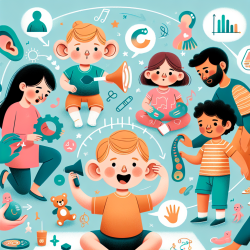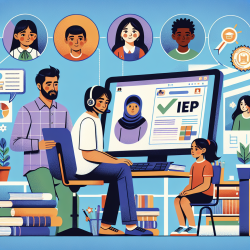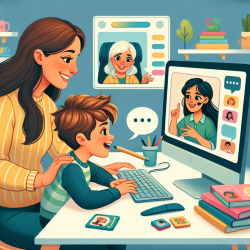Introduction
In the realm of speech-language pathology, the importance of early intervention cannot be overstated, particularly for children with cleft lip and/or palate (CLP). Recent research published in the International Journal of Otolaryngology titled Assessment of Single-Word Production for Children under Three Years of Age: Comparison of Children with and without Cleft Palate sheds light on the phonological development of children with CLP compared to their typically developing peers. This blog aims to provide practitioners with actionable insights derived from this study to improve their clinical practices and encourage further research.
Key Findings from the Research
The study utilized the Profile of Early Expressive Phonological Skills (PEEPS) to assess children aged 18-36 months. The results revealed significant differences between children with CLP and their non-cleft (NC) peers in several areas:
- Consonant Inventory: Children with CLP had a significantly smaller consonant inventory compared to NC children.
- Place of Articulation: Fewer place contrasts were observed in children with CLP, particularly in alveolar-velar and labial-velar contrasts.
- Manner of Production: Significant differences were noted in the manner of consonant production, with children with CLP showing lower accuracy.
- Error Patterns: Higher rates of sound substitutions and omissions were observed in children with CLP.
- Syllable Structure: No significant differences in two and three syllable word production, but initial consonant clusters were less accurate in children with CLP.
Clinical Implications
The findings from this study offer several practical implications for speech-language pathologists:
1. Comprehensive Assessment
Utilizing tools like PEEPS can provide a detailed profile of a child's phonological development. This can help in identifying specific areas of delay and tailoring intervention strategies accordingly.
2. Early Intervention
Given the slower phonological development in children with CLP, early intervention is crucial. Implementing broad-based intervention strategies, such as parent-implemented naturalistic language approaches, can be beneficial.
3. Focus on Consonant Inventory
Special attention should be given to expanding the consonant inventory of children with CLP. Activities that encourage the use of a wider range of consonants can help in this regard.
4. Addressing Error Patterns
Interventions should also focus on reducing sound substitutions and omissions. Techniques such as modeling correct articulations and providing immediate feedback can be effective.
Encouraging Further Research
While the PEEPS protocol has shown promise, further research with larger sample sizes is needed to validate its efficacy. Additionally, comparing PEEPS to other reference standards, such as language samples, can help in evaluating its sensitivity and specificity.
Conclusion
Incorporating the findings from this study into clinical practice can significantly improve outcomes for children with CLP. By focusing on comprehensive assessments and early interventions, speech-language pathologists can help these children achieve better phonological development.
To read the original research paper, please follow this link: Assessment of Single-Word Production for Children under Three Years of Age: Comparison of Children with and without Cleft Palate.










